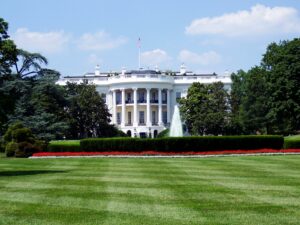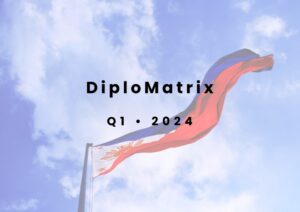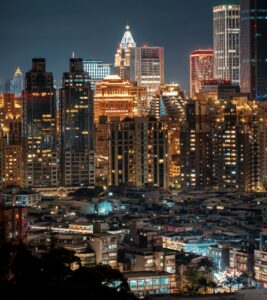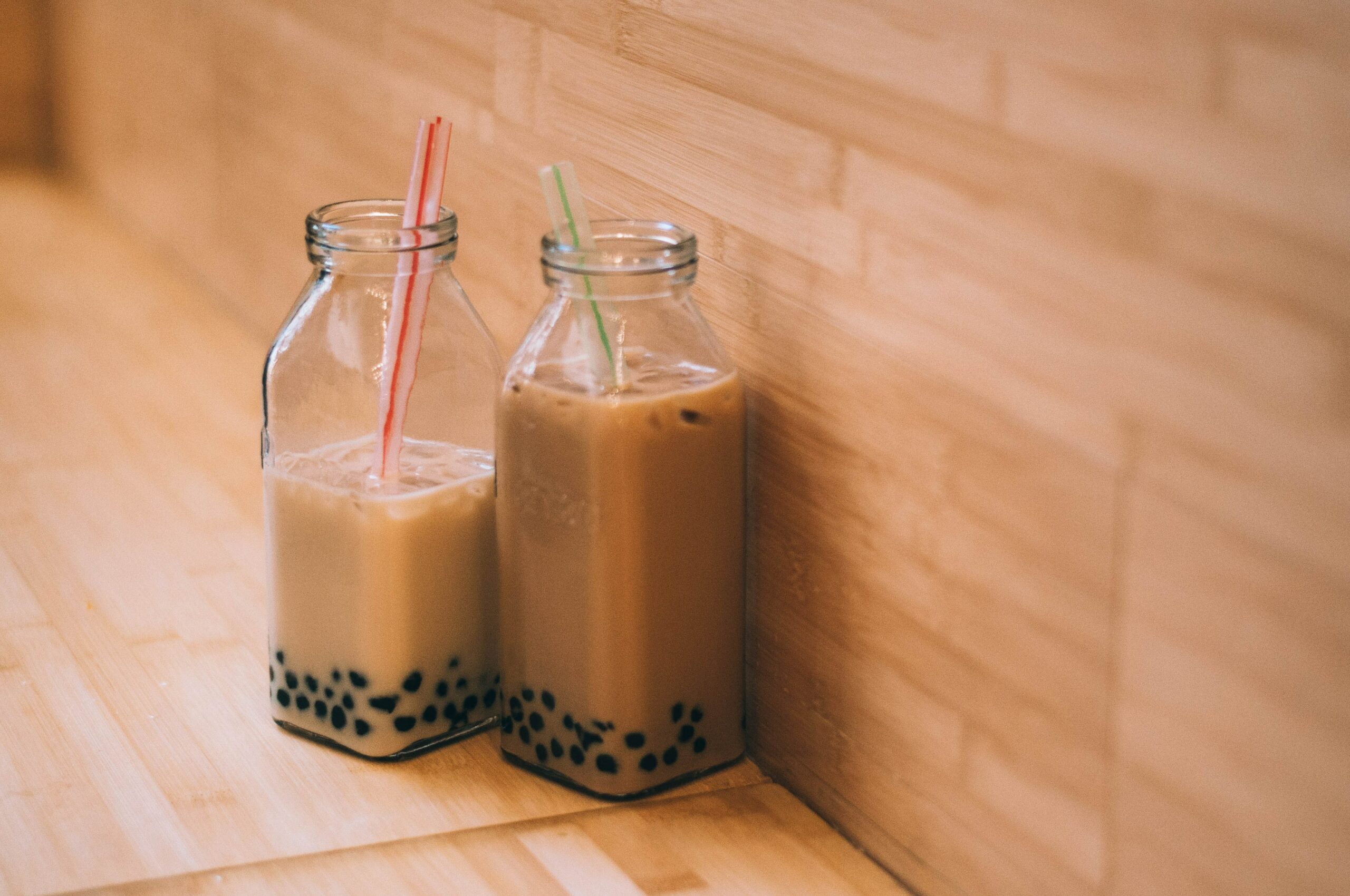By TSENG Ting-Hsuan (曾婷瑄 )
TSENG is currently the correspondent of the Central News Agency of Taiwan in France. She is also a columnist and doctoral student at the University of Panthéon-Assas in the field of communication and media. She was responsible for producing documentaries and shows for several TV channels, editing and translating for Global News at Asia Digital Media, international public relations for the Golden Melody Awards. She was also the administrative manager touring Taiwanese and Chinese shows in France and the freelance writer for Migrant’s Park – an independent media outlet on the migrant population in Taiwan.
“Milk Tea Alliance lets us know that we’re not alone. A lot of young people in Taiwan, Hong Kong, Tibet or other countries are fighting with us against the dictatorship. It creates a community of young generation, who want to have the right to decide for their future,” said Jom Wannasiri, a Thai political refugee in France, during the interview with the author.
‘Milk Tea Alliance’ originated in a war-of-words that took place within network society between Chinese and Thai internet commentators — ‘the first transnational geopolitical Twitter war that Thais have engaged in — so described Prajak Kongkirati, an assistant professor of Thammasat University[1].
During the worldwide lockdown, Vachirawit Chivaaree (nickname Bright), a Thai idol who just received international attention from a BL (Boys’ Love) series, shared an IG post of a Thai photographer that referred to Hong Kong as a country. Facing furious Chinese nationalist trolls, the idol ended up by removing the post and apologizing.
Unsatisfied, Chinese netizens dig up his historical interactions and found a post of his girlfriend Nnevvy (IG name) two years ago, where the actor left a comment saying “looked as beautiful as a Chinese girl” under her photo taken on a street of Taipei. Nnevvy replied, “What? It’s Taiwanese girl’s style.” — a phrase implying Taiwan as an independent country that made Chinese netizens exploded with anger.
In April 11, the war was declared between Chinese and Thai fans. Within few hours, Taiwanese and Hongkongers joined forces with Thais against the Little Pink[2] as the topics swiftly turned into politics. Chinese trolls, or Wumao[3] insulted Thai government and Royal family while netizens from Thailand, Hong Kong and Taiwan scoffed at Chinese authoritarian regime and human rights violations with hashtag ‘Nnevvy’.
In fact, Thais, especially the youth, have long felt discontent about their government and monarchy, who fled to a luxurious castle in Germany during the Covid-19 crisis with tax-payers’ money. According to Section 112 of the Thai Criminal Code, insulting the monarch is criminalized and risks up to 15 years of prison. Therefore, Thai netizens adopt a unique self-mocking style against Chinese insults and counterattack by criticizing sarcastically the CCP and Xi Jinping.
A day after the outburst of the online war, a Facebook page named ‘Nnevvy’ was created to gather all the sarcastic and creative memes used during this war of words. This fan page whose administrators are shown to be based in Malaysia has now more than 93 thousand likes.
Within less than 2 days, the battle has generated more than 2 million related tweets with hashtag ‘nnevvy’, and has drawn 4.6 billion views from over 1.4 million posts on Weibo[4], Chinese equivalent of Facebook.
There is no specific evidence as to when and why the term ‘Milk Tea Alliance’ made its appearance. However, the author has traced back the tweets and found that around 2 a.m., April 13, Andrew from Hong Kong tweeted in Chinese “What Taiwan, Thailand and HK have in common : they all have world-renowned milk tea drinks.”
At 12:28, April 13, ShawTim, also from Hong Kong, tweeted “#nnevvy we are Milk Tea Alliance” with a picture of three arms joined together, and the term ‘Milk Tea’ in the middle. This post is generally seen as the beginning of the Alliance. Within few minutes, the hashtag ‘MilkTeaAlliance’ began to spread. By the evening, derivative characters and memessurrounding this hashtag went viral within Southeastern asian countries. A pan-Asian democratic alliance fending off dictatorship and hegemony started to take shape.
In the 1st of May, #TweetForTaiwan movement launched by the U.S. Department of State urged international solidarity to Taiwan’s participation in the World Health Assembly (WHA) by tweeting supportive posts. We are able to catch a glimpse of the synergy of Milk Tea Alliance by analyzing the participants of the movement, which would have been otherwise limited to Taiwanese and Taiwan-friendly Americans if there were no such transnational alliance.
Amal Sinha, consulting editor of Indian international relation magazine The Kootneeti chose randomly 449 tweets postedduring the first day of the movement and found out that 49% were from India, 19% from the US, UAE and Germany were at 4% each. Taiwan and Thailand held 2% each and Hong Kong 1%. According to Amal Sinha, “a significant portion of the UAE tweeters could be Indians living there[5].”
A week later, Taiwanese researchers Horng-En Wang and Fang-Yu Chen[6] presented an article that analyzed the composition of those who took part in #TweetForTaiwan during the past week. Out of the 39,896 tweets gathered from May 1 to 7, eliminating posts with no credible location, 28% came from Thailand, 21% from Taiwan, followed by 19% from India, 12% from the US and 11% Hong Kong. In terms of time order, Indian netizens were the most mobilized for the first day of the movement; for the second day, Taiwanese were the most active, with strong participation from India. Since the third day, it was Thais that took over the momentum, generating even more tweets than Taiwanese. In short, it was a movement initiated by the US and completed by countries of the Milk Tea Alliance that took turns rallying.
Then came the protests in Thailand. In July 18, due to long-standing grievances related to the authoritarian rule and military junta, as well as the disappearance of Wanchalearm Satsaksit, a dissident leader exiled in Cambodia, protests unprecedented in several aspects were on the brink.
It is during social movements in Thailand when Milk Tea Alliance in virtual space transcended gradually into real-life collaboration and mutual supports among like-minded citizens from Thailand, Hong Kong, Taiwan, India, even Tibet, Mongolia, Uyghur community and Malaysia — all of whose singular milk tea drinks have already been mapped out by the Alliance’s supporters.
Thai movements are immediately supported by Hong Kong leading activist Joshua Wong, who called on to “Support our Thai fellows in their fight for democracy” on his twitter account. This post with ‘#MilkTeaAlliance’ received 43K retweets. Wong’s tweet was echoed and shared the next day by Ford Tattep Ruangprapaikitseree, Secretary General of FreeYOUTH — one of the organizers of the movements. Ruangprapaikitseree expressed his belief in people making a real change, without forgetting to add #MilkTeaAlliance at the end of his tweet.
Actually, Thailand’s movements are not only inspired by Hong Kong’s democratic protests, but strongly bound with their HK counterparts in terms of the spirit of resilience, democratic claims, strategies of mobilizing dubbed ‘be water’, tactics of communicating, as well as the ‘learderless’ inclination.
Facebook page ‘Thailand and Hong Kong Together’ created at the end of 2019 by Thais backing HK’s pro-democracy protests now turned into a platform where Hongkongers and Taiwanese diffuse information concerning Thai movements and express their solidarity. This fan page is now followed by more than 21K netizens and posts systematically in English, Chinese and Thai.
In August 13, ‘Taiwan Alliance for Thai Democracy (TATD)’ was formed by a group of Taiwanese students and Thai students residing in Taiwan, aiming at supporting demonstrations in Thailand. Three days later, a solidarity rally of nearly 300 participants was held at Taipei Main Station to call for democratic reform in Thailand and stand up against authoritarianism in Asia altogether.
Thai student Akrawat Siripattanachok, who helped organize the rally in Taipei with Hong Kong activists and Taiwan students, told Reuters that this action was “the first physical expression of the Milk Tea Alliance.” “We don’t want to just talk about it online. We want a pan-Asian alliance for democracy[7]”, said the Thai student.
As situation in Thailand intensified since October 14, numerous solidarity rallies were held by TATD in support of Thai people’s pursuit of freedom and democracy, including several protests in front of the Thailand Trade and Economic Office in Taipei.
It is also worth mentioning that during the movements in Thailand, Black Bauhinia flag[8], Taiwan Independence flag, and sometimes even Tibet’s Snow Lion flag are often held by Thai protesters alongside with Thailand flag, in order to emphasize international solidarity in the fight against dictatorship.
On October 16, the day after the announcement of state of emergency in Thailand, Francis, a leading student activist and a fervent supporter of Milk Tea Alliance posted a video on a twitter account named ‘Anti One China TH’ before being arrested. He encouraged Thais to keep up the fight and ended his tweet with #MilkTeaAlliance. This video received 300K views within a day.
During this day of confrontation, numerous opinion leaders and important online communities showed their solidarity with #MilkTeaAlliance, such as Joshua Wong, Benedict Rogers, founder of Hong Kong Watch, Freddy Lim, Taiwanese legislator and activist, ‘Fight for Freedom. Stand With Hong Kong’, an influential account with 156K followers, and ‘Khaosod English’, a Bangkok-based English news media. Hence, the hashtag serves as a mechanism that ties like-minded citizens together to generate more visibility and engagement within social as well as traditional media.
Jom Wannasiri emphasized during the interview how CCP supported the Coup d’Etat by Prayut Chan-o-cha in 2014 to form a military-backed government and how Thai monarchy colludes with Chinese government in several investment projects and political affairs. As far as he’s concerned, the emergence of the Alliance represents the convergence of anger of young generation in Hong Kong, Thailand and Taiwan against problems linked not only with all forms of authoritarianism, but violations of human rights — whether under the CCP or Thai government, who is a key ally to Beijing.
To many’s surprise, the online meme war has evolved into a wider offline political protest. Even though people from these countries have neither same political agenda nor economical priority, they try to bind together and act as a collective against China’s stepping-up influence and unilateral actions in the area.
For the first time, netizens from Thailand, Hong Kong, Taiwan, and other Asian countries, joined forces not only to strike back China’s huge Wumao army, but also to fend off authoritarian ideology. Twitter has transformed from a battlefield to a sphere where transnational pro-democracy netizens build a pan-Asian solidarity. It is foreseeable that the hashtag Milk Tea Alliance will persist, for it has already made its appearance throughout different issues, including to rebuke the statement of Chinese Embassy in Bangkok that “China and Thailand are brothers” and “blood is thicker than water”, to condemn the Mekong River Dam project that impacts downstream countries, to push a boycott of Disney’s remake of Mulan, to raise awareness about human rights abuses in Xinjiang and Tibet, to voice support for Hong Kong’s protests, to attack Chinese attempts in South China Sea and India-China borders, and, as mentioned above, to rally for Taiwan’s international recognition.
This self-initiated process in which this pan-Asian solidarity collaborates and cross-promotes causes offers a glimpse of the internet’s unifying potential. The Alliance demonstrates that ‘Milk Tea’ is actually thicker than ‘blood’. As Wasana Wongsurawat, a Chinese studies expert in Chulalongkorn University concluded, young people are less likely to accept authority’s arguments than their parents, for “they are rather convinced by milk tea, which is their lifestyle[9].” ‘Milk Tea’, therefore, has become a symbol of shared identity and ideals of the youth on how they see themselves in the power relationships with their governments.
[1] « Insta-star wars: China tensions in Southeast Asia flare online », Reuters, April 14 2020, https://www.reuters.com/article/us-thailand-china-internet/insta-star-wars-china-tensions-in-southeast-asia-flare-online-idUSKCN21W11P
[2] A term used to describe ignorant, easily brainwashed young Chinese nationalists, who are normally familiar with the internet.
[3] As known as “50 cents”, are internet warriors paid by the CCP to comment on the post about China and to promote Chinese communism/nationalism.
[4] « Insta-star wars: China tensions in Southeast Asia flare online », op. cit.
[5] https://twitter.com/amaleshwar/status/1256781724731748357
[6] WANG, Horng-En and CHEN, Fang-Yu, « Does ‘Milk Tea Alliance’ really exist? 40 thousands tweets in 7 days, who are backing #TweetforTaiwan on Twitter » (Tdl.), https://whogovernstw.org/2020/05/12/wangchen2/
[7] « Pro-democracy Milk Tea Alliance brews in Asia », Reuters, August 18 2020, https://fr.reuters.com/article/asia-protests-idUSL4N2FJ12F
[8] It is a variant of the flag of Hong Kong. It gained popularity during the 2019-2020 Hong Kong protests, and it is often displayed by democracy protesters.
[9] « Young Thais join ‘Milk Tea Alliance’ in online backlash that angers Beijing », Reuters, April 15 2020, https://in.reuters.com/article/us-thailand-china-internet-idINKCN21X1ZT




